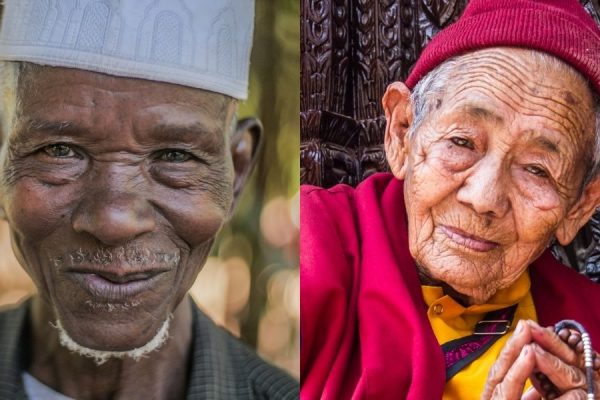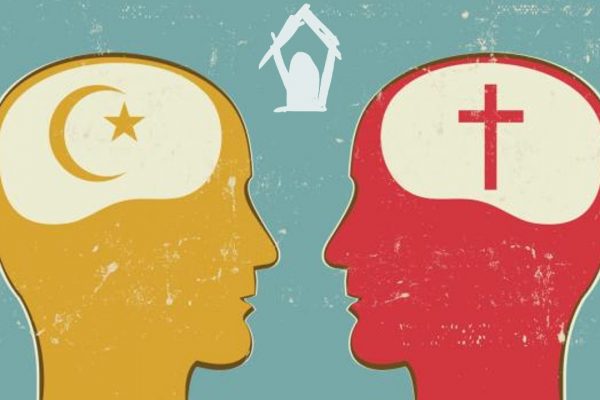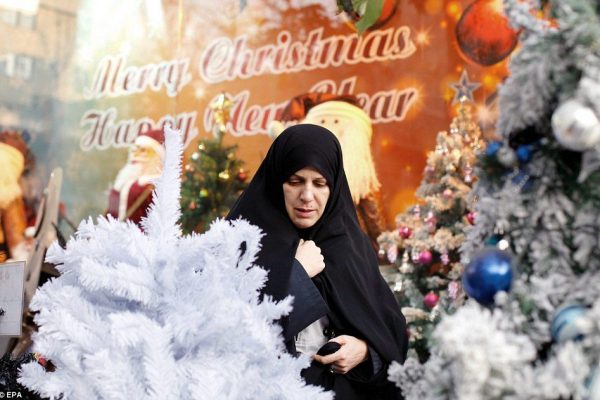“As a Reform Rabbi, I follow a verse in the Qur’an: ‘Good and evil deeds are not equal. Repel evil with what is better; then you will see that one who was once your enemy has become your dearest friend…’ [41:34].”
“As a Reform Rabbi, I follow a verse in the Qur’an: ‘Good and evil deeds are not equal. Repel evil with what is better; then you will see that one who was once your enemy has become your dearest friend…’ [41:34].”
What did the 9 dead victims of a mass killing in a black church in Charleston, South Carolina [June 2015], and the 6 dead victims of an attack on an Islamic mosque in Quebec [January 2017], and the 26 shot dead in a white small town church near San Antonio, Texas [November 2017], and the 11 killed in a Jewish synagogue in Pittsburgh, Pennsylvania [October 1018] have in common?
Only their innocence; and being victims of scapegoating. While the victims were of many different faiths; the church killers, like those who do school killings, were all hate-filled, angry males using innocent people as scapegoats. They do not take out their anger on the rich and powerful because they themselves have fantasies of becoming rich or powerful. They just scapegoat all those who are different from them in race, religion, gender, nationality or place of birth.
But, rather than talk about the evil in the hearts of some men, I think it is just as important to talk about the loving reactions of other people and not these despicable acts.
In this I, as a Reform Rabbi, follow a verse in the Qur’an:
“Good and evil deeds are not equal. Repel evil with what is better; then you will see that one who was once your enemy has become your dearest friend…”
[41:34]
For example: After a Florida mosque was burned in an arson attack, a local Muslim noticed something odd about the donations made to a repair fund he launched. Instead of the round numbers Adeel Karim expected —$25, $50, $100 —the donations were in multiples of $18 — $36, $72, $90, $118 and or more.
“I couldn’t understand why people were donating in what seemed like weird amounts to the cause,” Karim wrote in a Facebook post (2/27/17). “Then I figured out after clicking on the names Cohen, Goldstein, Rubin, Fisher…. Jews donate in multiples of 18 as a form of what is called ‘Chai.’ It wishes the recipient a long life.”
Specifically, since each Hebrew letter has a numerical value; the letter “chet” equals 8 and “yod” equals 10. Together they form the Hebrew word “chai,” which has a numerical value of 18 and means “life.”
Karim’s local mosque, the Islamic Society of New Tampa, which had its exterior damaged by an arsonist was one beneficiary of a wave of interfaith support between Jews and Muslims since the inauguration of President Trump.
When vandals damaged headstones in a Missouri Jewish cemetery Muslim activists raised more than $125,000 to fund repairs. When a Victoria, Texas, mosque was razed by vandals on January 20, 2017, members of a local Jewish congregation gave the displaced Muslim worshippers a key to their synagogue. Robert Loeb, the president of the Jewish congregation Bnai Israel, said:
“Everyone knows everybody, I know several members of the mosque, and we felt for them”.
When vandals toppled more than 100 headstones in a Jewish cemetery in Philadelphia, many Muslims were among the throngs of people who traveled in from other states to repair them, and the Muslim Student Associations of Florida State and Florida A&M universities delivered bouquets of flowers to campus Jewish organizations and local synagogues in a show of solidarity after the two cemetery attacks.
And finally, Jonathan Greenblatt, head of the anti-Semitism watchdog group the Defamation League, received a standing ovation when he said that if U.S. Muslims were forced to register with the government, he would register as a Muslim too.
These accounts of simple brotherly love are modern descendants of the following archetypical fable, transmitted orally in both Arabic and Hebrew for many centuries; and finally written down in several different versions in the mid 19th century:
“Two brothers who inherited a ‘valley to hilltop’ farm from their father divided the land in half so that each one could farm his own section. Over time, the older brother married and had four children, while the younger brother remained unmarried.
One year there was very little rain, and the crop was very meager. This was at the beginning of a long-term drought that would turn the whole valley into an arid, treeless, desert where even grain did not grow, and all the springs dried up.
The younger brother lay awake one night praying and thought: ‘My brother has a wife and four children to feed, and I have no children. He needs more grain than I do; especially now when grain is scarce.’
So that night, the younger brother went to his barn, gathered a large sack of wheat, and left his wheat in his brother’s barn. Then he returned home, feeling pleased with himself.
Earlier that very same night, the older brother was also lying awake praying for rain when he thought: ‘In my old age, my wife and I will have our grown children to take care of us, as well as grandchildren to enjoy, while my brother may have no children. He should at least sell more grain from his fields now, so he can provide for himself in his old age.’
So that night, the older brother also gathered a large sack of wheat, and left it in his brother’s barn, and returned home, feeling pleased with himself.
The next morning, the younger brother, surprised to see the amount of grain in his barn seemed unchanged, said ‘I did not take as much wheat as I thought. Tonight I will take more.’That same morning, the older brother, standing in his barn, was thinking the same thoughts.
After night fell, each brother gathered a greater amount of wheat from his barn and in the dark, secretly delivered it to his brother’s barn.The next morning, the brothers were again puzzled and perplexed. ‘How can I be mistaken?’ each one thought. ‘There’s the same amount of grain here as there was before. This is impossible! Tonight I will make no mistake—I will take two large sacks.’
The third night, more determined than ever, each brother gathered two large sacks of wheat from his barn, loaded them onto a cart, and slowly pulled his cart toward his brother’s barn. In the moonlight, each brother noticed a figure in the distance.
When the two brothers got closer, each recognized the form of the other and the load he was pulling, and they both realized what had happened!
Without a word, they dropped the ropes of their carts, ran to each other and embraced.”
Christians and Jews believe the hill is in Jerusalem. Muslims believe the valley is located in Mecca.
I believe that they are all correct, and God willing, I hope someday everyone may see both cities and their holy sanctuaries, Jerusalem’s Temple (Beit HaMikdosh) and Mecca’s Ka’ba, (Baitullah); as a pair of lungs breathing in the same Holy Spirit (Arabic: روح القدس, Rūḥ al-Qudus; Hebrew: Ruakh ha-Kodesh); into the material world. For this spirit of the Living God is central to humanity’s spiritual inspiration from the One God of Abraham, Ishmael, and Isaac.
May the inspiration of this ancient tale, transmitted orally for so many centuries in both Arabic and Hebrew, help Christians, Jews, and Muslims overcome the many hate-filled actions occurring in today’s world. As the Qur’an states:
“‘Believers, be steadfast in the cause of God and bear witness with justice. Do not let your enmity for others turn you away from justice. Deal justly; that is nearer to being God-fearing.”
[5:8]
Then all the children of Adam and Abraham will learn to live in Holiness, Peace and Prosperity. And as Prophet Isaiah predicted (19:23-25): “On that day there will be a highway from Egypt to Assyria. The Assyrians will go to Egypt and the Egyptians to Assyria. The Egyptians and Assyrians will worship together. On that day Israel will be the third, along with Egypt and Assyria, a blessing on the earth. The Lord Almighty will bless them, saying, “Blessed be Egypt my people, Assyria my handiwork, and Israel my inheritance.”





